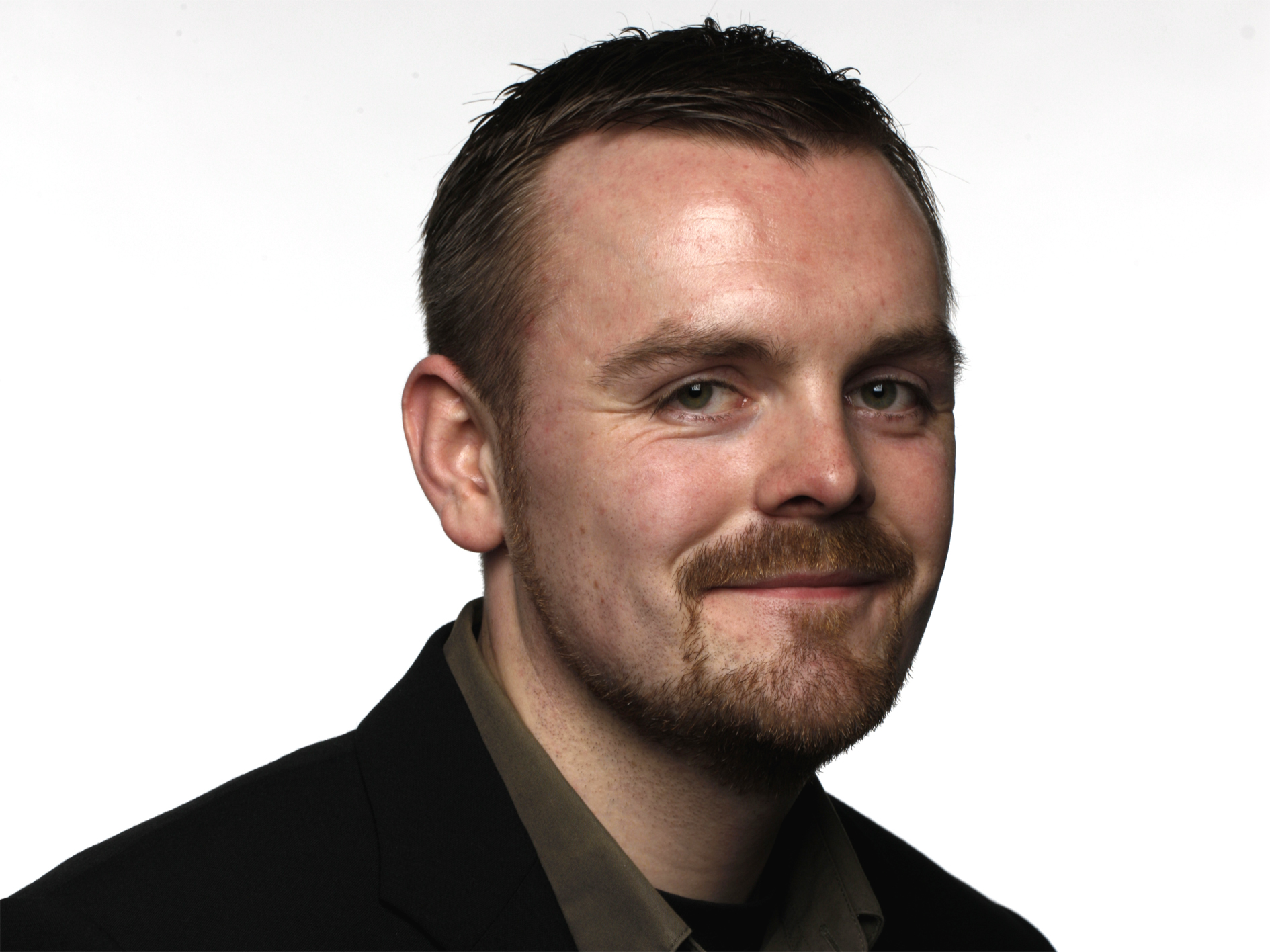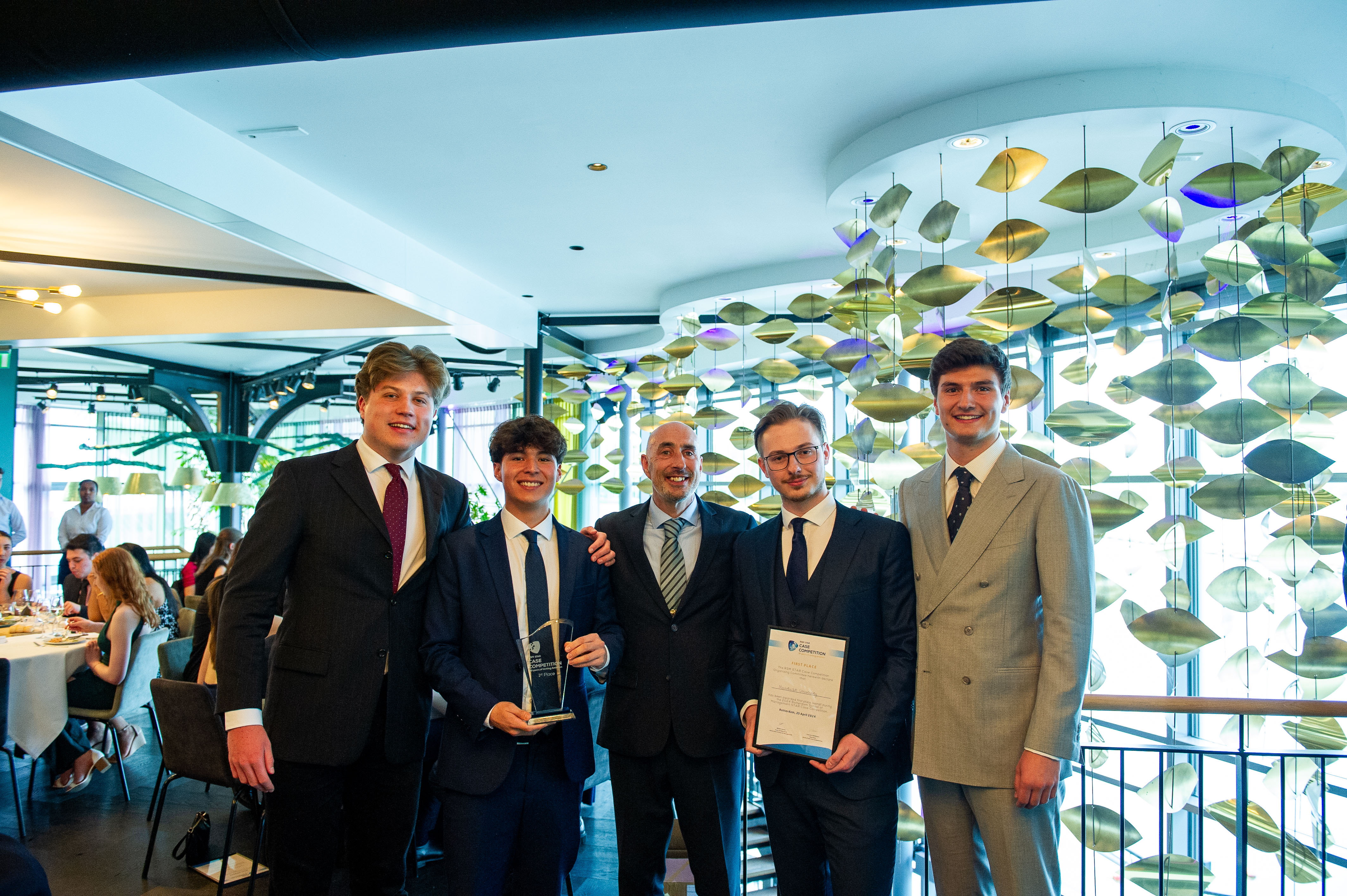Two SBE researchers awarded Marie Curie Fellowships
Researchers Jonas Heller and Hannes Rusch from Maastricht University’s School of Business and Economics (SBE) have each been awarded Marie Skłodowska-Curie Individual Fellowships to conduct their research. The fellowships are personal grants and are awarded to both promising and experienced researchers.
We caught up with Jonas and Hannes to congratulate them on winning these prestigious awards and to find out more about each of their projects.

Jonas Heller, Assistant Professor
Project title: Augment your pension - How Augmented Reality (AR) can improve future financial well-being: The role of future self-imagery and its impact on pension awareness and engagement
What is the main goal of the research you will be doing as a Marie Curie Fellow?
In this research project, I will try to find a solution for a major problem that occurs around the world, in developing as well as developed nations: elderly poverty. For example, over 25 million Americans aged 60+ are economically insecure, defined as living at or below 250% of the federal poverty level (FPL).
In many cases, this is due to the fact that people are unaware of their pension plans and do not engage with their pension providers early enough, leading to financial difficulties later on in life. As consumers, we have a hard time imagining our future selves or our future contexts such as living circumstances and financial situations. But evidence shows that if we could better imagine our future selves, this could reduce future reward discounting and might be beneficial for our future financial well-being.
One potential solution to help us overcome this problem could be the emerging technology ‘Augmented Reality’ (AR). Reality-enhancing technologies such as AR promise pathways to overcome this imagery problem that we face when engaging in decision-making that affects our future well-being in two different ways. First, reality-enhancing technologies allow changing the current self, for example by virtually overlaying someone’s face with an older (future) version of himself or herself. Second, reality-enhancing technologies allow to virtually transport the current self into a future context, for example by utilizing virtual environments that present a consumer with an environment in the distant future. To date, pension funds still rely on communication such as emailing and seem to have overlooked the potential of the reality-enhancing technology of AR.
Can you tell us more about how you will carry out your research?
In this project, I will investigate whether AR can support consumers in imagining their future selves and whether this subsequently leads to higher pension awareness and engagement and, in turn, to an increase in financial well-being. As part of this project, I will carry out a field study with a pension provider to provide evidence on actual behaviour with regard to pension awareness and engagement.
For this project, I will be working out of SBE’s Marketing and Supply Chain Management department with Prof. Dr. Lisa Bruggen, given her tremendous expertise in financial services. My expertise in research on imagination as well as AR pairs well with other researchers in the department, namely Dr. Tim Hilken and Prof. Dr. Dominik Mahr. The three of us are part of a global research group ( www.augmented-research.com) that spearheads AR research in marketing, consumer behavior, and service research. I am excited to start this endeavor at the department, and believe that there is a great match between the department and the candidate for rigorous and novel research.
What type of impact on society do you hope your research will have?
Elderly poverty and a lack of pension awareness among young people have been addressed as one of the largest problems in the 21st century. This is highlighted by the WHO’s first sustainable development goal (SDG) ‘#1 No Poverty’ and is further highlighted by the SDG ‘#6 Gender Equality’, as the wage gap pre-pension results in females being more affected by elderly poverty than males.
Women make up 40% of the workforce in most developed countries, and these numbers are on the rise. Even if women are objectively equally as knowledgeable as men, research has shown that they tend to be more insecure about their capacity to make financial decisions. Yet, the major pay gap and lower levels of pension awareness in women make it particularly crucial for policymakers to increase pension engagement for women. Only in this way can we lessen the wealth gap between elderly men and women. In my research, I will take this into account and investigate whether women and men react differently to AR face-aging applications and whether its impact on financial well-being differs.

Hannes Rusch, Assistant Professor
Project title: Discrimination and Group Identities
Can you tell us about the research project you will be working on as a Marie Curie Fellow?
Every day the news is full of reports about how opportunities in life in Europe 'de facto' depend on group memberships that 'de jure' should not matter. Racism and discrimination persist in our societies, even though some seminal models of economic theory would predict such behavior to be eliminated by the forces of free markets. So, we have a behavioral puzzle there: people keep discriminating even though it leads to inefficient outcomes. Based at SBE’s Microeconomics and Public Economics department and in collaboration with the University of Applied Police Sciences Saxony-Anhalt in Germany, I will work on two aspects of this puzzle: ‘Being a member of which types of groups makes you more likely to show discriminatory behavior?’ and ‘Which types of persons are more vs. less likely to adopt such discriminatory group norms?’.
I plan to carry out a comprehensive meta-analysis of the relevant economic literature on discrimination. This meta-study will provide key empirical insights into the mechanics of discriminatory group identities and their interaction with the individual readiness to adopt them – a trait labeled 'groupiness'. I will also conduct experiments myself to study this ‘groupiness’ in more detail.
Discrimination increasingly lies at the heart of political and social concerns in Europe. How do you hope that your research can help address these concerns?
The insights that my research will produce will allow for the development of substantially improved theoretical models of group identity based discriminatory behavior. And it will be also very informative for practitioners aiming at changing group norms for the better, e.g. think about company cultures. In my Marie-Curie project, in particular, I will directly work together with colleagues at the University of Applied Police Sciences Saxony-Anhalt in Germany to explore how my findings can be used to improve the professional training of young women and men striving to become law enforcement officers.
Also read
-
Maastricht Sustainability Institute (MSI) of Maastricht University School of Business and Economics (SBE) has successfully applied for funding in the ‘Driving Urban Transitions’ program of NWO/ JPI Urban Europe. Three new transdisciplinary projects with international partners have recently started...
-
SBE took first place in the Rotterdam School of Management Star Case Competition (RSMCC). The competition welcomed 16 top-level international business teams of four students, who were tasked with tackling two real-life business cases.
-
Higher air pollution increases the likelihood of people voting for opposition parties rather than ruling parties. This is the major finding of research by Nico Pestel, a scientist at the Research Centre for Education & Labour Market (ROA) at the Maastricht School of Business and Economics.



